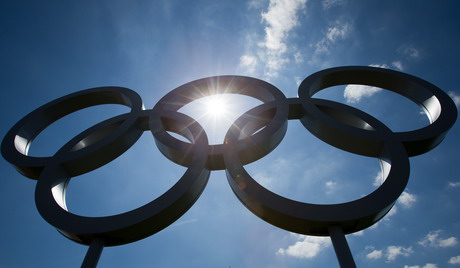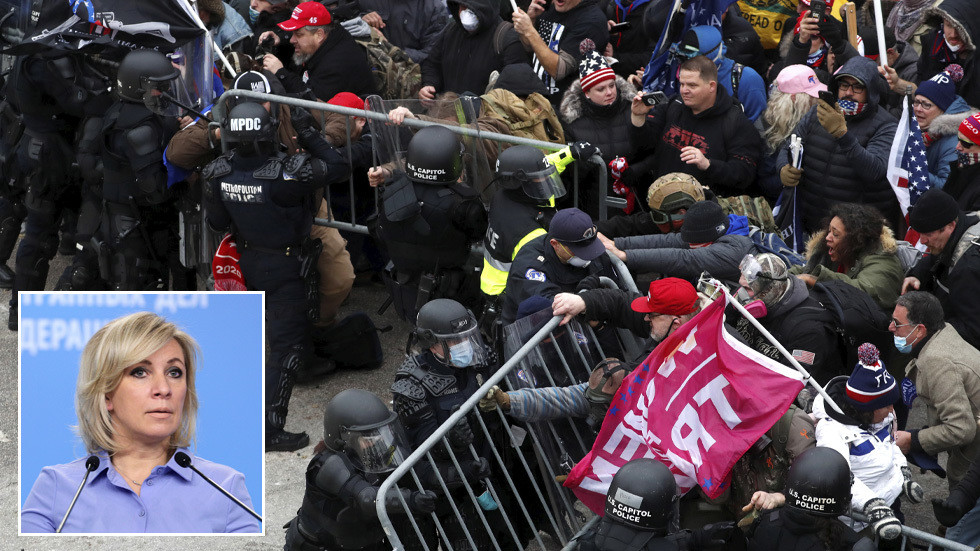
 The media frenzy around the attempts to make a connection between the Olympic games in Sochi and the purported limitation of gay rights in Russia is taking absurd proportions. The forums of the American dailies, including the respectable The New York Times and The Washington Post, are teeming with great champions of defending gay rights at a safe distance. Suggestions include, after the trivial boycott and a grandiose coming out of several hundred sportsmen, a ban on performance in the United States for those Russian musicians who do not condemn "Putin’s anti-gay laws,” a special oath of allegiance to the gay cause for every athlete that wins a medal at the games in Sochi, etc.
The media frenzy around the attempts to make a connection between the Olympic games in Sochi and the purported limitation of gay rights in Russia is taking absurd proportions. The forums of the American dailies, including the respectable The New York Times and The Washington Post, are teeming with great champions of defending gay rights at a safe distance. Suggestions include, after the trivial boycott and a grandiose coming out of several hundred sportsmen, a ban on performance in the United States for those Russian musicians who do not condemn "Putin’s anti-gay laws,” a special oath of allegiance to the gay cause for every athlete that wins a medal at the games in Sochi, etc.Read more: https://english.ruvr.ru/news/2013_07_30/Olympic-stick-can-Washington-wield-it-against-Russia-1729/
All these creative ways of using the Games as a tool to damage "Putin’s Russia” politically are standing on two rotten pillars. The first pillar is misinformation. The authors of articles in the Western press usually fail to mention that the law in question does not penalize homosexuality – it merely purports to shield the minors from explicit sex and aggressive advertising of "non-traditional” sexual practices. The second pillar is hypocrisy. The partisans of this "pro-gay guerilla” reserve for themselves the seats in the back rows. The risks are to be taken by athletes who either miss the opportunity of their lifetime (by not going to the games) or are supposed to face the "wrath and repressions” from the supposedly homophobic Russians.
In fact, there will be neither wrath nor repressions. Male homosexuality has been decriminalized in Russia back in 1993, soon after the collapse of the Soviet Union, while female homosexuality has never been a crime, it was never mentioned in the Soviet Criminal Code. Athletes, gay or not gay, face no risks when they come to Russia – a country very different from the negative image deliberately created by part of the Western media.
"It looks like the world is being told that Russia prohibited homosexuality,” said Nikolai Surkov, a writer on foreign policy at the Moscow-based Nezavisimaya daily. "This is plain untrue.”
Several of Russia’s prominent writers are openly gay or pro-gay – and their books are published and read by hundreds of thousands of people. Eduard Limonov, the author of the famous book titled "A Russian Poet Prefers the Big Black Men” actually uses his homosexuality as a publicity pitch. Despite his radically anti-government views and a propensity for organizing unsanctioned political rallies in the center of Moscow, Limonov lives a life of a mundane person and is published by some of Russia’s most prestigious media outlets (including Izvestia daily and The Snob magazine). Lyudmila Ulitskaya, one of the top five Russian writers, wages a campaign for shielding children with same-sex parents from bullying at school. No government office has ever hampered her in that campaign, which she also carried to television. Margarita Sharapova, an openly gay author, whose recent novel "Moscow, the Station of Lesbos” made her a well-known author in Russia, in her books describes the "inner world” of the gay community of Russia’s big cities. Her novels, written with no strings attached, do not produce an impression of being a work of an underground "gay guerilla.”
The presence of a gay minority inside the community of Russian writers does not mean that Russians are ready to take advice from the US on such delicate matters as sexual culture and acceptable/unacceptable lifestyles.
"What I don’t understand is why are the Americans supposed to be judges on what is acceptable and what is not acceptable in sex life – and in the way this life is being reported to wider audiences,” said Yuri Kublanovsly, a Russian poet and former political émigré.
Unfortunately, some Americans – most of them not involved in any way in the Olympic movement or sports sphere in general – reveal a remarkable ability to use the Olympic games as a tool for pushing their "pro-gay agenda.”
"You have to starve the rat out – Putin is a rat,” the New York Times quotes an American playwright Harvey Firestein as saying. "The Olympic Committee must demand the retraction of the Russian laws we don’t accept under the threat of boycott.”
Well, people used Olympic boycotts to stop foreign interventions or to change a country's foreign policies in general (Moscow in 1980 and Los Angeles in 1984 were sad examples). But using Olympic games to change domestic laws is something new. And sinister.



_jpg/250px-ElbeDay1945_(NARA_ww2-121).jpg)








